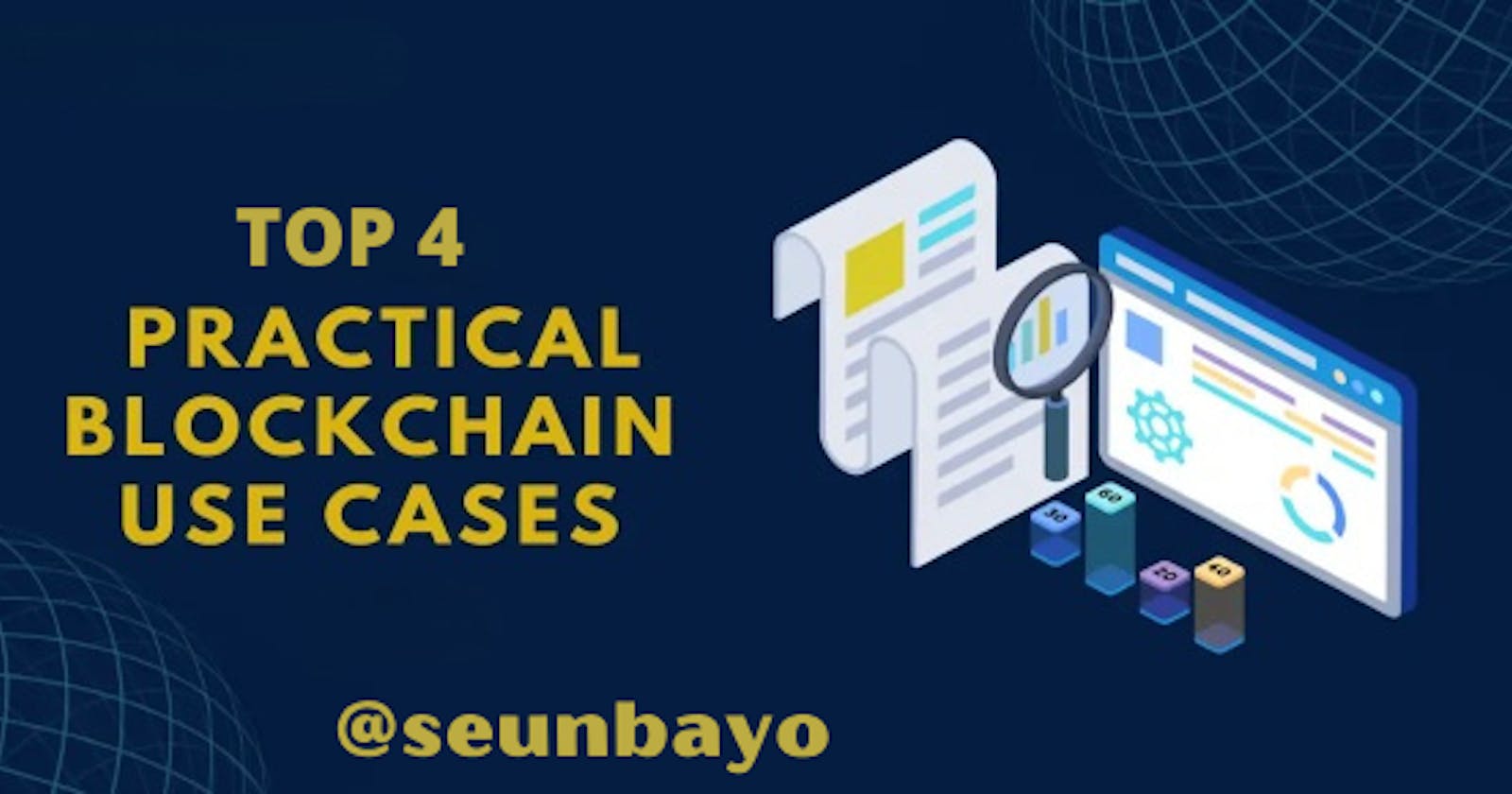The usefulness of the cup is in its emptiness
"Useful" the word is not fancy, but the concept is deep and versatile. When an idea becomes a reality, it only adds value when it fills a need. In simple terms, it becomes useful.
Blockchain technology started as an idea, today, it's a reality, but you might ask, is it useful?.
In this article, I'll discuss existing projects that show practical use cases of blockchain technology. You might want to empty your mind like a cup.
Projects that show practical use cases of blockchain
I guess the first use that comes to your mind is cryptocurrency. You are right; cryptocurrency has added so much value that it seems to be the only thing blockchain is good for.
However, this digital chain of networks is worth more. How?
1. Health Sector
Patientory
Health as we know is gold. But a significant lapse in the health sector is data fragmentation.
Think of Jerry, who moved to a new country. Unfortunately, he falls ill, and doctors at his new location need his existing medical records to understand his case. So, they ask for it, this is just a transfer between hospital systems, but of course, there is a usual delay. (where I come from you would have to start another test and registration in your new hospital because there is no system to cater for this)
This is where blockchain comes in. Patientory is a revolutionary medical platform built on the PTOYMatrix blockchain network.
This encrypted network has patient records from their provider stored on the blockchain and linked to each patient's patientory key (personal access).
This personal access means without Jude's permission; his records can't be used. And his doctor can access every health history and description accurately without delays or hidden information.
Someone might say, "this already exists in the regular world; why use blockchain?"
Efficiency is the watchword. Blockchain technology assures you of efficiency. Can you say the same for the "regular world?"
Another sector that is touched by blockchain technology is Logistics.
2. Logistics
DHL
Local and international exchange of goods and services is a must. Hence the logistics industry is crowded.
Logistics giant DHL conducted a joint study with Accenture, and the report says that there are over 500,000 shipping organisations in only the US. The problem in this industry is communication and transparency.
Rightfully known as "the logistics company for the world", it comes as no surprise that DHL forms stronger networks by infusing blockchain into their logistic processes.
DHL and Accenture created a serialisation prototype with nodes on a blockchain; this prototype is connected to six geographies. The goal?
To track pharmaceutical supplies across the supply chain. The supply ledger tracking the shipment is shared with distributors, warehouses, manufacturers, hospitals and other stakeholders.
Have you ever been in an awful situation where you aren't sure when your shipment will arrive?
With DHL's infusion of blockchain technology, that problem is solved. You can trust that shipping is transparent since changes cannot be made to a single chain without altering the entire block.
I trust that the logistics giant, DHL, won't invest in innovations that are- useless.
My next stop is the Government Sector.
3. Government
ConsenSys
I am confident that blockchain is the political saviour we've all been waiting for.
Over time, citizens have demanded accountability, transparency, and efficiency. These requirements have been constantly left unattended.
Blockchain technology meets each requirement and solves them. Have you heard of smart contracts? Did you know that a transaction can be automatically executed or cancelled on the blockchain by a simple "If" and "then" statements?
Imagine that community representatives go into a transparent smart contract with a Mayor. The agreement may be like this: If the Mayor spends more than 200,000ETH from his Ethereum wallet in 1 day, then all connected nodes should be alerted."
The bottom line of the smart contract between the Mayor and his people is that he is accountable to them. If he spends more than is stated, he would have to explain what the money's for.
Consensys is a blockchain-based company that creates solutions like the scenario we imagined. Their system architecture (Sotara) is built to track and reconcile government transactions swiftly and transparently. Thus increasing efficiency and cutting costs.
With blockchain technology, citizens gain control. They know what happens with government finances as information is accessible on the blockchain.
The last sector I would love to discuss is the creative industry, specifically art.
4. Creative Sector
Pixura
In the words of Francoise Sagan,
Art must take reality by surprise.
By utilising blockchain, these words have proved true. How? Through NFTs.
Non-fungible tokens (NFTs) are built solidly on the back of blockchain technology. This practical innovation gives creatives full accolades for their creations. On top of that, they make money off it.
A straightforward instance is the Nigerian Corp member, who recently made millions from selling his photograph of an old drummer on Opensea.
Pixura is a platform that uses blockchain technology to assist people in creating, tracking and exchanging NFTs.
With Pixura, you can create your digital art asset in minutes; the system is secure and encrypted. With their smart contracts, transactions are transparent and trustworthy.
The cool thing about Pixura is that it tends to the needs of tech newbies, developers, and even businesses. If this isn't a useful innovation, I don't know what is.
Blockchain might be different from what you already know. But all evidence points to not just its technology but its usefulness.
Remember, nothing in this world is as good as usefulness. It builds connections. It gives you fundamental importance, transcending physical space and boundaries.
The question is, "Will you accept the blockchain's useful innovation?".
